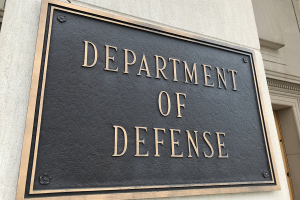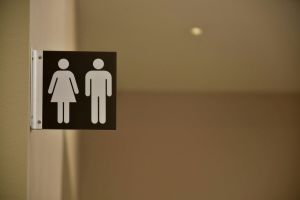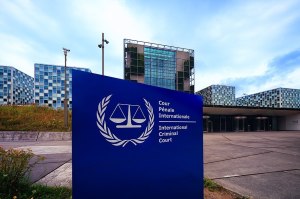Lack of Concern for Christians Is One Reason Behind Rise of ISIS, Says Open Doors President
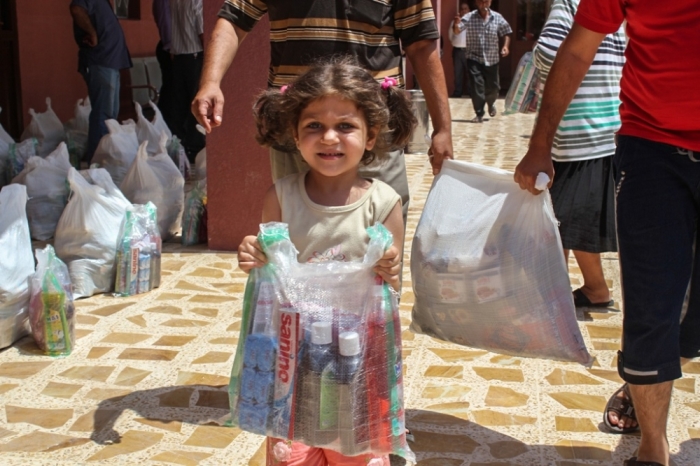
A lack of concern for Christians and a lack freedom of expression for religious minorities in the Middle East is one of the reasons behind the rise of terror group ISIS in Iraq and Syria, said David Curry, the CEO and president of Christian persecution watchdog group, Open Doors USA.
Curry spoke with The Christian Post in a telephone interview about the most pressing needs and concerns of refugees at camps in Syria and Iraq, where Open Doors is serving.
He also shared his thoughts on President Barack Obama's recent speech about America's strategy concerning the terror group; the hopelessness that refugees are facing; and how Christians can help those who are suffering right now.
Below is an edited transcript from Curry's interview with CP:
CP: How has Open Doors been responding to the crisis in Iraq in the past few months?
Curry: Open Doors is focusing on trying to feed, house and care for Christian refugees who have been forced out of Mosul and other areas affected by ISIS, the extremist jihadist group.
What that means, practically, is that we have care packages with food and water that are necessary to sustain life, and cooking instruments, mattresses — anything you can imagine. The Christians who have been affected by this have been forced out of their homes, they have lost their cars, their jobs, everything. They have nothing but the clothes on their back. Within these refugee camps we're seeing a great amount of stress.
We are also concerned about the spread of disease. When you have tens of thousands of people living in refugee camps with limited restroom facilities — if illness takes root in the camp it could spread very quickly.
And we're concerned about the stress on aid workers. The network of people we use are Iraqis themselves, and so they are both under stress for having to care for so many people, and are in danger themselves.
The refugees don't have any warm clothes. They are sleeping outside; the winter is just a few weeks away. There are some pressing issues that are very real outside, that are connected, but don't even include the stress and the pressure from the ongoing attacks, and the fact that ISIS is close and threatening.
CP: ISIS has captured a number of cities in Iraq in recent months. Has this increased stress among the refugees?
Curry: Absolutely. The tension has increased because you have tens of thousands of refugees who are living in makeshift camps on top of one another; often they have lost a loved one, so they are in trauma.
You have a mixture of very difficult circumstances. So we are very concerned right now that the tension could worsen within the camps.
CP: Why are we seeing such a rise in Christian persecution in the region and the rise of terror groups like ISIS?
Curry: I think you're seeing the rise of ISIS because of a lack of attention to the freedom of expression within the Middle East. You have extremist groups within Islam, like ISIS. It's not true of every person who is Islamic. But there are extremist groups like this who want to force people to convert to Islam at the point of a gun.
Unless we understand that threat, not just to Christians in the region but to people worldwide, we're not going to respond properly. I think it has risen because of a lack of attention and a lack of concern for Christians and other minority groups.
CP: What are your thoughts on President Barack Obama's speech on ISIS and his administration's strategy going forward?
Curry: What we would like to highlight is that we want to see Western governments, including the United States, recognize not just the fact that this extremist group is a threat to the U.S., but why this has happened. And it has happened because they do not allow religious expression of Christians. It's not just that they are extremely dangerous. But they are extremely dangerous because they want to force their faith upon others. And in this case, Christians are caught in the cross hairs.
We're not a political organization, but we want to see a focus on the value of religious expressions and freedom of religious expression. I did not hear that in a way that I wanted to, but I'm hoping that they will focus on that in the future.
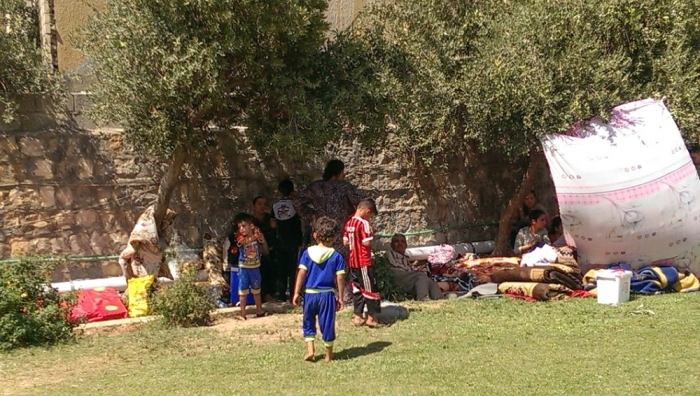
CP: From the refugees you or Open Doors' workers have talked to, do you get a sense of a unified message or common concerns?
Curry: Right now I think that the one unified message you will get is that there is a sense of hopelessness amongst the refugees. We are really praying that their hope will be restored. I think that many, if not most of them, are afraid to return to their homes. [They] don't think they'll ever be able to return to their homes, and they are looking at a future that, to them, seems very bleak. So if there is a unifying narrative, it's hopelessness.
We know that God can bring something good out of very, very tragic circumstances, but for the refugees on the ground, that's very difficult to see right now.
CP: What are differences and similarities between what Christians in Iraq and those in Syria are facing?
Curry: They are very similar. We are supporting Christian refugees in Syria as well. Some of the differences might be that Syria has a civil war going on and has a very unsympathetic dictator, so it's hard to pick sides. You have a civil war that was sort of hijacked by ISIS; while in Iraq, you just had a complete disintegration of the government and the strategic victory by this jihadist group.
Some of the nature of how it developed is different, but the reality on the ground is very similar for Christians and for other refugees.
CP: How can believers around the world help those who are suffering in Iraq and Syria right now?
Curry: I think the support of Christians in the West is greatly necessary. With food, with water, it's one of those things — this is going to be a problem for a long time. We can't lose our focus that these are brothers and sisters, and that they have been persecuted for their faith.
I encourage Christians in the West to support them with prayer, with resources like food, water, etc. By going to the website OpenDoorsUSA.org — people can give through that and through other agencies as well. We have been there for over 20 years in Iraq, and have a strong network of Iraqi Christians. So we're encouraging people to step up and take part in this effort to keep this group of Christians alive.
Open Doors lists Syria and Iraq at number three and four respectively on its World Watch List of countries where Christians face the most persecution. Further information about the group's work with refugees, including information on how to help, can be found on its website.
















